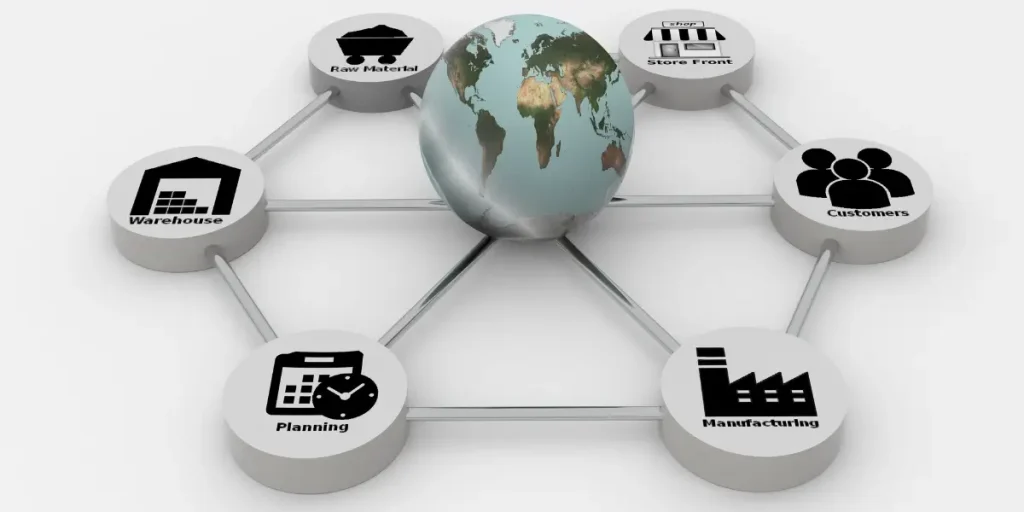Understanding Supply Chain Management (SCM)
Supply Chain Management (SCM) Software plays a crucial role in modern business operations. It focuses on managing the flow of goods, services, and information from the origin to the final customer. Effective SCM ensures seamless coordination between suppliers, manufacturers, warehouses, and retailers. This process helps in minimizing costs, improving efficiency, and enhancing customer satisfaction.
Key Components of Supply Chain Management
Several elements are essential to a well-functioning supply chain. These components ensure that goods move from suppliers to customers efficiently. Below are the main aspects of SCM:
1. Planning and Forecasting
Planning is the foundation of SCM. Businesses need to predict future demands accurately. This enables them to manage inventory levels effectively, ensuring the right products are available at the right time. Forecasting helps companies avoid overproduction or underproduction, both of which can be costly.
2. Sourcing
Choosing reliable suppliers is vital. This process involves selecting the right partners who can deliver quality materials on time. Strong supplier relationships can lead to better pricing, improved product quality, and on-time delivery. Sourcing decisions significantly affect a company’s bottom line.
3. Manufacturing
The production process is where raw materials are transformed into finished products. In SCM, efficient manufacturing processes ensure that goods are produced at the right time and cost. This involves streamlining operations to minimize waste, reduce production time, and improve product quality.
4. Logistics and Transportation
Logistics is the backbone of supply chain operations. It includes transportation, warehousing, and distribution. Effective logistics ensures that products are delivered to customers on time and in good condition. Optimizing transportation routes and warehousing can significantly reduce costs.
5. Inventory Management
Managing inventory is critical to avoid stockouts or overstocking. Companies need to strike a balance between having enough inventory to meet demand and avoiding excessive stock that ties up capital. Smart inventory management tools help monitor stock levels and demand patterns in real-time.
6. Customer Service
The ultimate goal of SCM is to meet customer expectations. Efficient supply chain management ensures timely deliveries and quality products, leading to improved customer satisfaction. In today’s competitive market, exceptional customer service can set a business apart.

Benefits of Efficient Supply Chain Management
Implementing an effective SCM strategy offers numerous advantages for businesses. Below are some key benefits:
1. Cost Reduction
By optimizing each component of the supply chain, companies can significantly reduce operational costs. Streamlining logistics, improving inventory management, and building strong supplier relationships all contribute to lowering expenses.
2. Increased Efficiency
An efficient supply chain reduces delays, minimizes errors, and speeds up delivery times. This leads to smoother operations and a more reliable supply chain.
3. Enhanced Customer Satisfaction
A well-managed supply chain ensures that customers receive their products on time, in good condition, and at a competitive price. This fosters customer loyalty and can result in repeat business.
4. Better Risk Management
SCM helps companies mitigate risks by identifying potential disruptions and planning for contingencies. This includes diversifying suppliers, building safety stock, and using advanced technology for real-time monitoring.

Conclusion: The Importance of SCM
Supply Chain Management is a critical factor in a company’s success. Efficient Supply Chain Management (SCM) reduces costs, improves efficiency, and enhances customer satisfaction. By mastering each component of the supply chain, businesses can gain a competitive edge in today’s global market.
